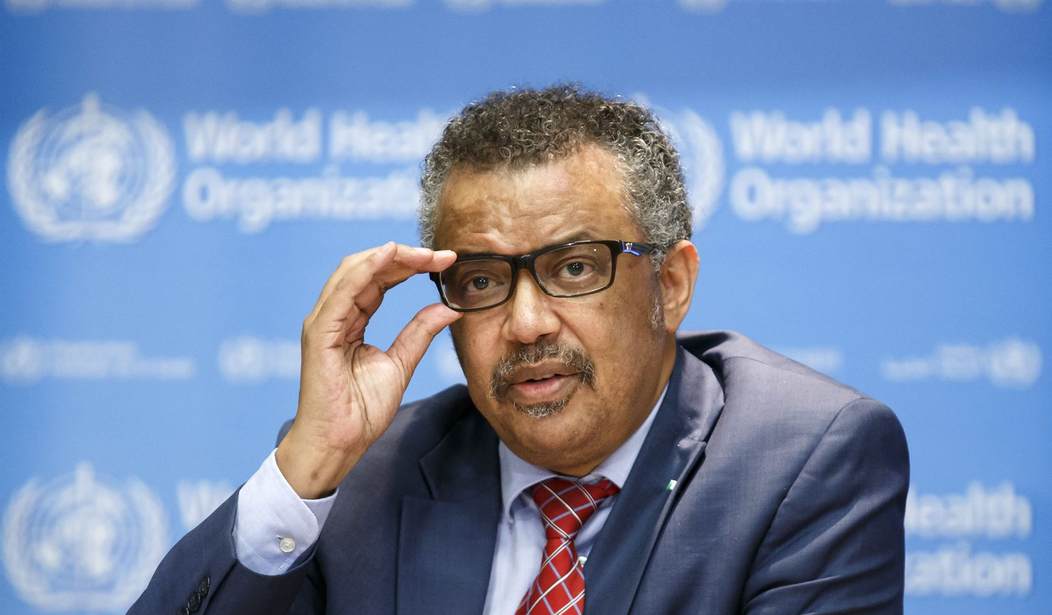Well before the World Health Organization was forced to deal with COVID they were dispatched to fight a significant outbreak of Ebola. Africa was hit especially hard, particularly in Congo, so the WHO sent teams there ostensibly to provide medication and other treatments to patients. (This was prior to the approval of the Ervebo vaccines in 2019.) Unfortunately, the WHO aid teams became infamous for the sexual abuse of women and girls in these remote locations, a problem that still plagues them today. It’s now being reported that the WHO sent a doctor to Congo to address the scandal of more than 200 women and girls who had been abused. Their “solution” was apparently to start handing out hush money. At least 104 women were paid $250, including one woman who was impregnated by a WHO worker and subsequently was left with a child suffering from severe birth defects requiring expensive medical treatment. (Associated Press)
Earlier this year, the doctor who leads the World Health Organization’s efforts to prevent sexual abuse travelled to Congo to address the biggest known sex scandal in the U.N. health agency’s history, the abuse of well over 100 local women by staffers and others during a deadly Ebola outbreak.
According to an internal WHO report from Dr. Gaya Gamhewage’s trip in March, one of the abused women she met gave birth to a baby with “a malformation that required special medical treatment,” meaning even more costs for the young mother in one of the world’s poorest countries.
To help victims like her, the WHO has paid $250 each to at least 104 women in Congo who say they were sexually abused or exploited by officials working to stop Ebola. That amount per victim is less than a single day’s expenses for some U.N. officials working in the Congolese capital — and $19 more than what Gamhewage received per day during her three-day visit — according to internal documents obtained by The Associated Press.
The Democratic Republic of Congo is among the world’s poorest nations and $250 is nearly half of what most of those people manage to take in over the course of a year. But it’s still an insultingly low amount of money for women and girls who were raped by the men who were supposedly sent there to save them. As noted above, the payments were barely as much as the doctor dispensing them was given on a daily basis.
The reason that many of the other rape victims didn’t receive the payments was that the money came with strings attached. In order to be given the money, the women had to complete courses intended to teach them “income-generating activities.” Of course, it’s very hard to generate income in a nation where most people have no money to spend, but some of the victims took the courses anyway simply to receive a few months worth of temporary relief.
The media has been reporting on sexual abuse by WHO personnel for years, particularly in Congo and other remote regions in Africa. Investigations were announced in response, but nobody in any position of authority at the organization was ever fired as a result. (They did later claim that five staffers had been dismissed.) The AP asked Dr. Gaya Gamhewage (the person distributing the checks) about the rampant sexual abuse situation. She simply said, “There is nothing we can do to make up for (sexual abuse and exploitation).”
Actually, it seems like there is a lot more they could do about this, but they choose not to do it. The WHO’s budget isn’t endless, but they could clearly cough up more than $26,000 dollars. Yet monetary reparations are not the entirety of what the victims are seeking. They are asking for justice. They want the perpetrators to be punished and proof of that punishment delivered to them in Congo.
These problems seem to follow the WHO wherever it goes. Just last year, during the organization’s annual conference in Berlin, Germany, a participant accused a WHO staffer of sexual assault during the conference. This sounds a lot more like a systemic problem than “just a couple of bad apples.” Handing out checks for a couple of hundred dollars to rape victims is not a solution. It’s a bandaid on a gaping wound.








Join the conversation as a VIP Member